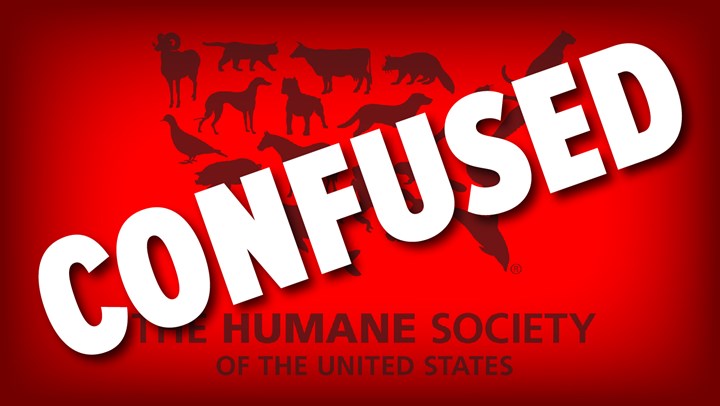
by Keith Balfourd, Director of Marketing, Boone and Crockett Club - Friday, October 27, 2017

The Boone and Crockett Club wishes to clarify a few points in response to a recent blog post by the Humane Society of the United States (HSUS). The blog trounced local sportsmen’s contests aimed to manage area predator, varmint and pest species populations. To support its position against killing these species, HSUS cited a Boone and Crockett Club big-game records program policy, saying it does not support the unauthorized use of its scoring system for contests or competitions that directly place a bounty on game animals by awarding cash or other prizes. In addition, HSUS asserted that some sportsmen’s groups like the Boone and Crockett Club opposed such contests because they disregard fair chase principles, noting: “Wildlife killing contests, which target coyotes, foxes, bobcats, or even prairie dogs and pigeons, are grisly spectacles that are about as far as one can get from ethical, fair-chase hunting.”
“They got at least this part right,” said Mark Streissguth, chairman of the Club’s committee for Hunting and Conservation Ethics. “Shooting predators is vastly different than the hunting of game species that are hunted for many more reasons that just killing to manage their numbers. Fair chase is what defines an ethical approach to the hunting of managed game species, not the removal of non-game species like predators and varmints. I can see how the two can be confused because sportsmen do hunt for game, which is governed by laws and the principles of fair chase. Sportsmen also participate in the management of predators where the same laws and a fair chase approach do not apply. This is an important distinction.”
Game species such as deer, elk, moose and antelope are hunted under game laws established by state wildlife authorities that provide opportunities for sportsmen while staying within the limits of sustainable harvests so these populations remain healthy and thriving. This comprises a science-based approach to keep their populations within the carrying capacity of their habitat, in balance with other wildlife and in numbers that do not exceed what people can tolerate. These laws include the required hunting license and tags, stamps or permits; structured hunting seasons; bag limits; quotas and other measures, including the tenets of fair chase. Some predator species such as bears and mountain lions are classified as game species and are afforded the same level of protection under these conservation and management laws. These same measures do not apply to non-game predator and varmint species.
“We don’t know if HSUS is uninformed or merely attempting to blur the lines to sway public opinion,” said Streissguth. “But trying to make it sound like the Club and sportsmen are against such contests because the methods used aren’t considered fair chase shows a misunderstanding of the principles of fair chase, which were initiated more than 130 years ago by the Club’s founder, Theodore Roosevelt. It is true the Club has a big game records policy of not supporting contests or the unauthorized use of its scoring system to award cash or expensive prizes, but the Club applies this policy, like our fair chase policy, only to managed game species. Our policies do not extend to the non-game wildlife species or the contests described in the HSUS post.”
Hunter-conservation organizations like the Boone and Crockett Club support the authority given to state and federal wildlife officials. This authority includes managing both game and non-game species as necessary. This authority also includes determining what is game and non-game and setting the rules for determining the legal methods for hunting—and those for the control or removal of other species when such activities are deemed necessary.
“All critters, including game and non-game animals and birds, have a place in healthy and balanced ecosystems,” Streissguth concluded. “Having too many can be just as harmful as having too few. We do thank HSUS for acknowledging the Club’s leadership role in promoting fair chase hunting and for recognizing that sportsmen do hold themselves to a high standard of fair chase when hunting game animals and game birds. The Club does encourage sportsmen when participating in predator and varmint reductions to do so with a humane approach.”
For more information, read the Principles of Fair Chase and Boone and Crockett Club position statement on Predator Management.
■ ■ ■
About the Boone and Crockett Club
Founded by Theodore Roosevelt in 1887, the Boone and Crockett Club helped to establish the principles of wildlife and habitat conservation and hunter ethics as well as many of the institutions, expert agencies, and science and funding mechanisms for conservation. Member accomplishments include enlarging and protecting Yellowstone and establishing Glacier and Denali national parks; founding the U.S. Forest Service, National Park Service and National Wildlife Refuge System; fostering the Pittman-Robertson and Lacey Acts; and creating the Federal Duck Stamp Program. The Club is headquartered in Missoula, Mont. For details, visit http://www.boone-crockett.org/.
E-mail your comments/questions about this site to:
[email protected]
Proudly supported by The NRA Foundation and Friends of NRA fundraising.
